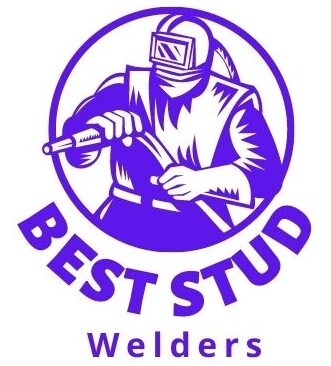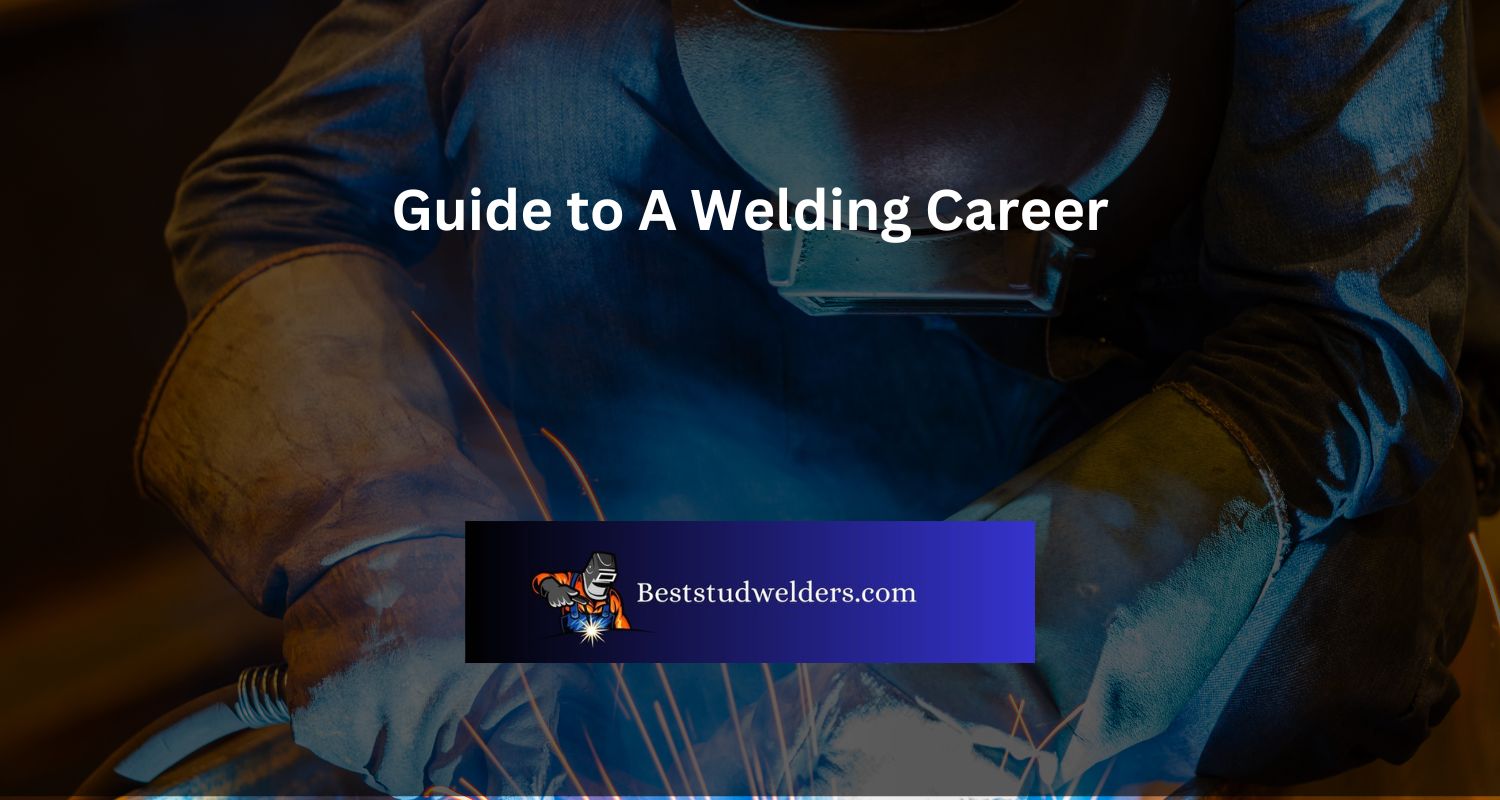Welding is a highly-skilled profession, an important part of the manufacturing industry. It means joining materials with heat, pressure, or both. It offers good job opportunities with good wages and job security. Demand for welders is increasing in various industries, making this a great time to enter the welding career.
To be successful, you need to understand different types of welding, techniques, equipment, and safety practices. You can learn welding skills through vocational schools, community colleges, apprenticeships, or on-the-job training. Companies often look for welders experienced in their respective industries.
When starting out, it’s important to know what type of welding you want to specialize in – MIG, TIG, Stick, or Flux-Corrected Arc Welding. It’s also crucial to keep up with new technologies in the field to have an edge when seeking job opportunities.
Pro Tip: Formal education in metallurgy and physics can help you understand materials science fundamentals which could be beneficial for your welding career prospects.
Types of Welding Jobs
Welding Career Paths: A Guide to the Various Jobs in Welding
There are many job opportunities in welding. Each job has different duties and requires specific skills.
Here is a table of the different types of welding jobs:
| Job | Description | Required Skills |
|---|---|---|
| Structural Welder | Works on large metal structures | Needs MIG, TIG and Stick welding skills |
| Pipe Welder | Welds pipes for gas, oil or water | Needs knowledge of geometry, blueprint reading and pipe fitting |
| Aerospace Welder | Specialized in working with aircraft materials | Needs knowledge of aircraft construction principles and procedures |
In addition, specialty welders are hired to work with certain metals or applications.
These jobs involve challenges and require training and experience. Welders must have precision, attention to detail and safety protocols.
Technology has improved welding, making it faster and safer. Automation processes like robotics are now used, so welders must stay up-to-date with new technologies to meet industry standards.
Fun Fact: Welding dates back to ancient Egypt around 3000 BCE, when gold boxes were welded using electric arcs!
You don’t need a PhD, but a welding certification will make you very attractive to employers.
Welding Certifications and Education Requirements
Individuals chasing a career in welding need certain certifications and educational requirements. These include training and certification from accredited institutions as well as licenses to work as a welder.
The table below shows essential Welding Certifications and Education Requirements:
| Certification/License | Description |
|---|---|
| AWS Certification | American Welding Society provides certifications for welders of all levels. |
| Certified Welding Inspector (CWI) | This certification is obtained by completing a course of study in welding inspection and passing an exam. |
| Welder Training Programs | Vocational schools offer welding training programs, including theory, safety practices and hands-on training. |
| Apprenticeships | Some welders enter apprenticeships under experienced professionals to gain skills. |
| State-issued Licenses/Certifications | Some states require licenses/certificates to practice welding professionally. |
To stand out, focus on specific areas such as techniques or materials. Also, excellent knowledge of industry regulations is important.
Keep up with industry events like trade shows or workshops to stay updated with new techniques and equipment.
By having the right certifications/licenses, staying educated and improving professionally, a career-driven person can have endless possibilities in welding! Pros: Play with fire and metal all day. Cons: May end up looking like a robot from protective gear.
.jpg)
Pros and Cons of a Welding Career
Welding: Pros and Cons
Working as a welder requires skill, patience, and stamina. It has many benefits, but also drawbacks.
Pros:
- High demand for welders in many industries like manufacturing, construction, and automotive.
- Possibility to work independently as a freelancer or business owner.
- Good pay with potential for growth through experience and education.
- Creative satisfaction of seeing results from your own work.
Cons:
- Exposure to hazardous materials like fumes and radiation.
- Risk of eye injuries and burns from extreme heat and bright light.
- Strain on the body from standing, lifting heavy objects, and awkward positions.
- Unstable work hours, depending on project needs.
Specializing in a specific area such as aerospace or underwater welding can lead to better job opportunities.
To succeed, continuous learning is essential. Trade schools, apprenticeships, and online courses can upgrade skills and make finding employment easier.
Welders must have hot sparks and steady hands!
Skills Required for A Welding Career
To succeed in welding, some essential abilities are key. Such as:
- Strong Attention to Detail: Keeping track of small details and being precise is a must.
- Dexterity: Physically having the skill set to use tools and equipment accurately and efficiently is vital.
- Critical Thinking: Thinking critically can help you solve complex problems, use innovative techniques, and finish tasks on time.
- Communication Skills: Having great communication skills is helpful when working with a team, other colleagues or architects, and even clients and stakeholders.
Plus, understanding material properties like fusion points and electrical conductivity helps in making informed decisions. Being open-minded to new techniques and tech developments can really boost your career.
To stay ahead of the game, take extra training courses related to your welding interests. And when things get tough, stay calm and take short breaks to keep your mental clarity.
Salary and Job Outlook for Welders
Welding professionals often think about job prospects and salaries. Based on the market trends, welding can be a profitable career with a promising future.
Check out the salary range and job outlook for welders in the table below:
| Job | Salary | Job Growth |
|---|---|---|
| Welder | $41,380 | +3% |
| Pipe Welder | $54,203 | +6% |
| Structural Welder |
Welders get a median salary of $41,380 per year, with an expected 3% job growth. Pipe welders earn more, at $54,203 per year, with a 6% job growth forecast. Structural welders are still in high demand.
Certified welders can earn even more. For example, welding inspectors can make up to $80k each year.
Want to do welding? Get the tools and equipment you need to make your welds as strong as possible!
Tools and Equipment Used in Welding
Beginning a Welding Career: Knowing the Gear
As you start your welding career, it’s important to know the essential tools and equipment. You need to be thoroughly informed of these to properly prepare. Here’s a table about the tools and equipment used in welding:
| Tools/Equipment | Description |
|---|---|
| Welding Machine | Transforms electrical power into heat to make a weld pool |
| Electrodes | Carries the electric arc from the welding machine |
| Shielding Gas | Keeps contamination from gases or air during welding |
| Consumables | Materials used up while welding, like filler metal or flux |
Different welding types require different tools and equipment. You may also need extra safety gear, such as gloves, helmets, and protective clothing.
You must take time and practice to learn how to use these tools. Seeking advice from experienced welders will help. Pay attention to specific details about using certain tools and working with certain materials. These can affect your efficiency and workflow.
One welder remembers his first days on site. He was intimidated by the complex equipment. But, getting tips from other professionals helped him overcome his fear. Eventually, he became confident and had a successful welding career.
Take note: the key to success in welding is to stay calm, even when things get hot.
Tips for A Successful Welding Career
Welding as a career can be tough, yet rewarding. To succeed, you need the right knowledge and skills.
- Staying up-to-date on the latest trends and technologies is essential. This helps expand your skill set and boost productivity.
- Safety is a must. Welding carries many risks. So follow all safety guidelines.
- Networking matters. Connecting with other welders can bring apprenticeships and job opportunities.
- Manage your finances. This can help you plan for business purchases like equipment and materials.
- Hard work pays off. Tony Anderson started by fixing machinery. Now his welding business is successful.
So, to be successful in welding, you need commitment and continuous learning. You’ll also need to prioritize safety and build industry connections. Lastly, why do welders make great problem solvers? They know how to stick things together!
Frequently Asked Questions about Welding
For those thinking of a welding career, common questions usually arise. Such as job prospects, training needed, and safety issues. Knowing answers to these can help you decide if it’s the right career for you.
One question often asked is: “What education and training do I need to become a welder?“. Like many skilled trades, welding often requires formal education or training. This can range from on-the-job apprenticeships to vocational schools or degree programs at technical colleges/universities. Requirements depend on location and employer.
Another question is: “What job prospects do welders have?” This depends on local economy and industry demand for welding services. But, since metalworking is a big part of construction and manufacturing industries, welders typically have good prospects.
Welding is unique with safety precautions needed. High temperatures and hazardous fumes require equipment such as protective clothing and face shields/helmets with built-in respirators. Knowing and following safety measures is key to a long and safe career.
Welding has been around since ancient times. It was widely used during the Industrial Revolution to join metals into useful objects. Buildings and infrastructure projects are only two examples.
In conclusion, potential welders should research education paths carefully, and prioritize safety. With good training, job opportunities will depend on market factors. Automation and detailed manufacturing processes affect job prospects for future welders.
So, before you dive into welding, ask yourself: do you like sparks flying in your face and potentially setting your hair on fire?
Conclusion: Is A Welding Career Right for You?
Do you ponder a welding career? To make the right call, it’s key to comprehend the various aspects of this field. Welding needs technical skills, accuracy, physical power and imagination. On top of that, you need to be comfortable working in tight spaces and handling intense temps and loud machines.
While welding can be a great opportunity with good pay and job security, it may not be for everyone. Research the different welding methods, industries that need welding services and certifications for particular roles. Explore your strengths and interests to check if welding is a fit for your goals.
Don’t forget to stay up-to-date with advances in the field. Constant training can help you learn new techniques and stay informed of industry trends.
Don’t miss out on the chance of launching a fulfilling welding career. With hard work and dedication, you can become a competent welder who supports society’s infrastructure requirements.
Frequently Asked Questions
What qualifications are required to pursue a welding career?
There are several routes to a welding career, but a high school diploma or equivalent is typically required. Many employers prefer candidates with vocational education or welding certification from an accredited school or training program.
What skills are necessary for a successful welding career?
Welders must have excellent manual dexterity, hand-eye coordination, and spatial awareness. They must also possess strong analytical skills and be able to read and interpret technical drawings and blueprints. Attention to detail and the ability to follow safety protocols are also essential.
What industries hire welders?
Welders are employed in a variety of industries, including construction, manufacturing, shipbuilding, aerospace, and automotive repair. They may work for private companies, government agencies, or be self-employed.
What types of welding are there?
There are several types of welding, including Stick welding, MIG welding, TIG welding, and Flux-cored welding. Each type uses different equipment and techniques, and welders may specialize in one or more types.
What is the job outlook for welders?
The job outlook for welders is good, with the U.S. Bureau of Labor Statistics projecting a 3% growth in employment between 2019 and 2029. Welders with specialized skills or experience working with advanced materials may have the best job prospects.
How much do welders earn?
Welders’ salaries vary based on factors such as their experience, education, and specialization, as well as the industry and location where they work. The median annual wage for welders, cutters, solderers, and brazers was $42,490 in May 2020, according to the U.S. Bureau of Labor Statistics.
Paul Dixon is a certified welder with a wealth of experience in welding and related technologies. He started his career as an apprenticeship in welding, where he learned the ropes and acquired extensive skills in the craft.
Over the years, Paul has continued to sharpen his expertise, earning him top-rated welding certification. He remains one of the most outstanding welders in the industry.







